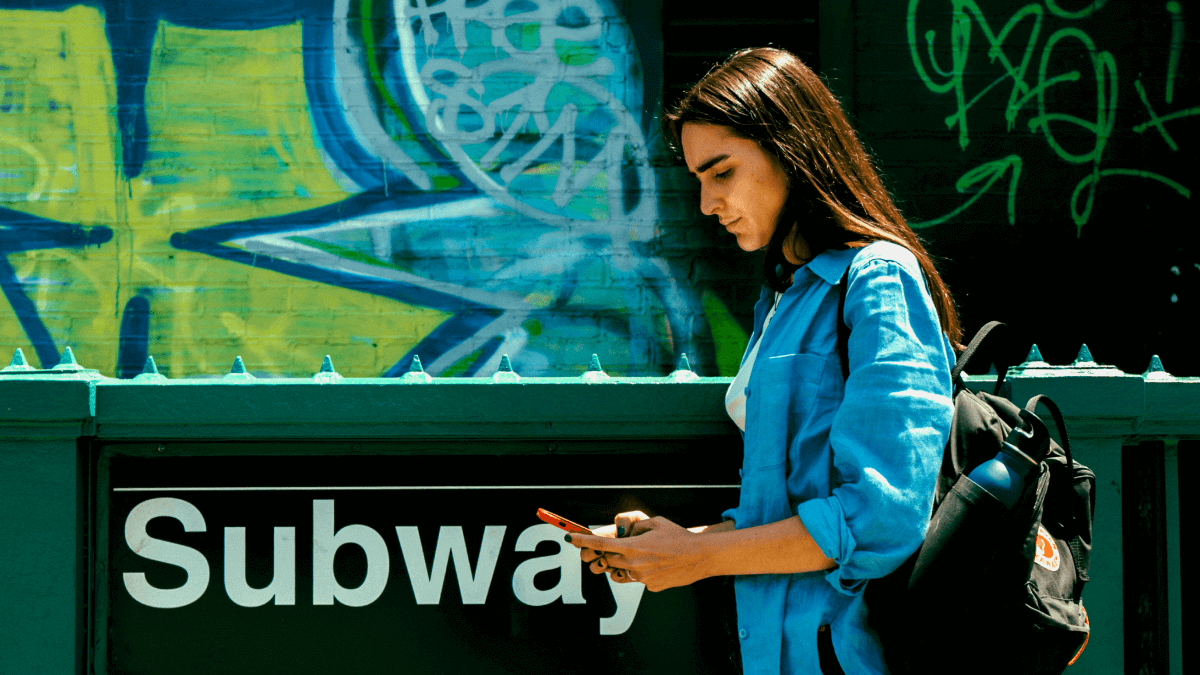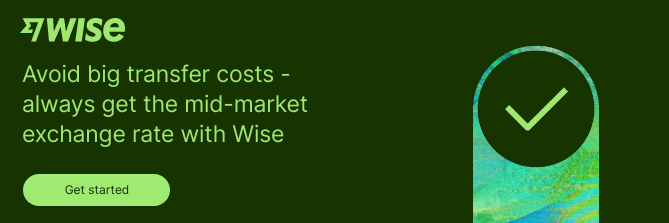Selling inherited foreign property from the US: Complete guide
Read on for a step-by-step guide to selling inherited property abroad, including fees, taxes, and timelines.

PayPal is a super popular way to shop online, send and receive payments - but is it safe? How safe is PayPal when you’re buying things from ecommerce sites? And is PayPal safe to use with strangers when someone wants to send you a payment?
This guide covers all you need to know about PayPal’s security features and common scams, including phishing scams and how fake charities may target you to try to get money through your PayPal account.
And because PayPal’s not your only payment option, we’ll also introduce Wise’s low cost international transfers as a good way to beat PayPal’s overseas payment fees.

You can send a payment to someone with PayPal, make a PayPal international transfer, or even request a PayPal payment if someone needs to get money to you. But is PayPal safe? What PayPal security is there to stop your financial information being compromised, or to protect your credit card or bank account from thieves?
We’ve got the lowdown on all this and more, coming right up.
Used sensibly, PayPal is pretty safe for money transfers.
When you send a payment to someone with PayPal, you don’t need to get their bank details - just an email address will be enough. This is a security feature - as well as being convenient - as you won’t have to divulge sensitive financial information to others¹.
The main issue with PayPal safety when it comes to money transfers is actually fraud and scams, where criminals target PayPal account users and request payments, sometimes posing as friends or family members, or even charities. We’ll cover some common PayPal scams later - but it’s worth highlighting upfront that you should only send money to people you know and trust, and you should never feel pressured to make a payment for any reason.
PayPal has various measures in place to make sure PayPal is safe for both buyers and sellers, whenever they make or receive an online payment. It’s one of the reasons PayPal grew to be such a popular payment platform. For buyers, PayPal offers protection on eligible PayPal purchases, as well as 24/7 monitoring of accounts to watch out for suspicious transactions, dispute resolution services and more.
PayPal’s purchase protection² means that if an item you order and pay for using PayPal doesn’t arrive, is damaged or turns out to be substantially different to the way it was described, PayPal may be able to refund your payment.
To make sure PayPal is safe for sellers - and to encourage online stores to offer PayPal as a payment method, PayPal also offers seller protection³. This can apply in a couple of cases - complaints about an unauthorized transaction, or complaints from customers stating that an item was not received.
If you’re an online seller, you’ll be able to see if the items you’re selling are eligible for full or partial seller protection by logging into your PayPal account. There are a handful of excluded categories which never qualify for seller protections - and to qualify on eligible items you’ll still need to comply with certain PayPal rules, like providing proof of shipment for complaints about undelivered items.
Here are a few of PayPal’s key safety features which help keep your account, money, and personal details secure:
Whether PayPal or your credit card is safer to use when you shop online may depend on the specific protections offered by your card. In general terms, credit card payments are covered by consumer protections, which should mean you can get a refund if something goes wrong with your transaction. This may apply if the item you’ve ordered never turns up, or is broken when it arrives, for example.
PayPal’s buyer protection offers a similar level of protection on eligible purchases, which may mean you’re covered in the same way whichever payment method you prefer.
One option, of course, is to add your credit card to PayPal and use this as your payment method. However, in this case, bear in mind that you can’t get a refund from both your card issuer and PayPal in the event that something goes wrong.
PayPal is very convenient for sending money and shopping online. But is it safe to link a bank account with PayPal in the first place, so you can use your account to send money or shop?
The good news is that PayPal has been built with security in mind. All sensitive customer information is securely encrypted and stored. With the most important financial information, PayPal employees won’t even get access to all your data - only what’s needed to be able to help process transactions or answer queries⁴.

PayPal’s great for many local transactions and transfers made in US dollars - but when it comes to sending money overseas, PayPal’s fees may be higher, and may get higher exchange rates, too.
Instead, check out Wise, for low cost international transactions which use the mid-market exchange rate with no hidden fees or exchange rate hikes. You can open a Wise account to hold and exchange 50+ currencies, send money to 80+ countries, and get a linked Wise Multi-Currency Card to spend online and in person, in 170+ countries. You can also open local account details in up to 10 currencies, to get paid fee free from 30+ countries.
No minimum balances, no maintenance fees, and no exchange rate markups - just easy ways to send, spend, hold and receive 50+ currencies.
See how much you can save with Wise:
Please see Terms of Use for your region or visit Wise Fees & Pricing for the most up to date pricing and fee information.
One of the most common issues users have with PayPal is running into scams. Unfortunately, this is because criminals continually come up with new ways to target vulnerable people via banking and financial accounts. While PayPal does have good protections in place to keep customers safe, individual users also need to take common sense precautions to make sure their accounts aren’t compromised, and to steer clear of any problems. Here’s what you need to know.
Here are some of the most common PayPal scams, and a little about how they work⁵:
In general, you can avoid being scammed on PayPal by using normal precautions, just as you would when transacting in the real world. For example, never send a payment to someone you don’t know, and don’t feel pressured to pay an invoice you don’t recognize.
Most scams aren’t that sophisticated - if something feels off, or an offer feels too good to be true, it’s time to stop and think. There’s usually really helpful, up-to-date lists of common scams available online, like this one, which can help you identify scams and prevent anything untoward happening with your PayPal account.
If you’re unfortunate enough to get scammed on PayPal you’ll need to report it to PayPal, and often also the police, depending on the specific type of scam.
You can get in touch with PayPal by logging into your account and visiting the Resolution Center. Here, you’ll be able to specify the type of issue you’ve run into and learn how PayPal can help. If you’ve been the victim of a crime, you’ll likely have to report it to the police, and PayPal can assist them in providing the information needed to investigate.
Exactly what PayPal can do if you’re scammed will depend on the details of the situation. If you’ve purchased something online, and it doesn’t arrive, or arrives damaged, you may be able to get a refund via PayPal buyer protection.
If you’ve sent a payment and want to cancel it, you’re advised to contact the other party first and ask for your money back. If the matter can’t be settled easily, you’ll need to open a dispute in the PayPal Resolution Center⁶.
The same goes for sending personal payments to others. If you’ve sent money and realize the email address you used was wrong, you’ll only be able to cancel the transfer if it is not yet completed⁷. Once it shows as completed in your PayPal account, your only option would be to request a refund and lodge a dispute if that’s not successful.
In most cases, you’ll manage and report any issues with PayPal via the PayPal Resolution Center. Log into your PayPal account to lodge, view or update any issues, including scams and fraud.
If you’ve received an email you think may be a scam or a phishing message, forward it to phishing@paypal.com for investigation.
PayPal is a pretty safe way to shop online and send money. Cutting edge security is one of the key features of PayPal’s services - and one of the reasons PayPal has become so popular. However, there are criminals out there looking for new ways to get money from vulnerable victims - which does mean that PayPal, like other financial service providers - is targeted by scams.
Use this guide to get to grips with the most common PayPal scams out there - and remember, if something feels off when you’re transacting online, it’s probably a good idea to take a step back and make sure you’re not walking into a scam.
Sources used:
All sources checked on 30 January 2023
*Please see terms of use and product availability for your region or visit Wise fees and pricing for the most up to date pricing and fee information.
This publication is provided for general information purposes and does not constitute legal, tax or other professional advice from Wise Payments Limited or its subsidiaries and its affiliates, and it is not intended as a substitute for obtaining advice from a financial advisor or any other professional.
We make no representations, warranties or guarantees, whether expressed or implied, that the content in the publication is accurate, complete or up to date.

Read on for a step-by-step guide to selling inherited property abroad, including fees, taxes, and timelines.

Thinking of moving to Spain or Portugal? Find out what tax programs they have for expats to decide which might be better for you.

Need to report the sale of an inherited property abroad? Read on to learn how to avoid capital gains tax and other tips.

Interested in selling a classic car overseas? Find out what American classic car models are popular abroad and tips for listing and shipping your car.

Find out the key points of international estate planning, including US taxes, wills and trusts, country laws, and reporting requirements.

Importing a car to the US? Learn about the 25-year import law and how to verify your vehicle for import to the US.